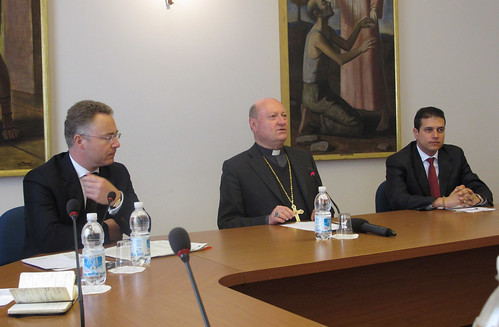
What are governments for? At its most fundamental, the role of government is to keep people and communities safe. Right until the modern era, provision of security was seen as the prime function of government. It still is an essential priority, and it is no coincidence that assuring national security remains one of the over-riding foreign policy objectives of the British government. The other is increasing national prosperity. And thereby lies the question. How do we measure, and therefore promote, prosperity? Is a successful country one that has strong GDP growth? Or are there other factors to our well-being?
Alongside the Embassy of Costa Rica and the Pontifical Council for Culture, my embassy is bringing this debate to Rome on 28 May. My government has for some time accepted what the OECD describes as the need for “better policies for better lives” – that to “really improve lives”, in the words of David Cameron, GDP growth alone is not sufficient. The Catholic Church and the Holy See has long been aware of this. Pope John XXIII defined the purpose of authority as the service of “the common good”, its key conditions being freedom, truth, justice and solidarity in society. But how can governments know they are on the right path towards serving the common good?
The well-being debate has engaged thinkers from Amartya Sen to Josef Stiglitz. In 2010, the British government established a Measuring National Well-being development programme at the Office of National Statistics, seeking to gauge how well-being at a national level could be promoted through government policies. It established key indicators beyond economic growth: relationships, health, what we do, where we live, personal finance, education, the natural environment, governance, and even subjective well-being – am I satisfied with life, or not, and why? – to underpin its analysis. Its report in November 2012 – Life in the UK – was the first time well-being had been mapped in Britain.
Will measuring well-being change government policies and help improve lives, as independent think tanks like the New Economics Foundation or our own national Well-Being programme imply? The jury is still out. I would like to think that better policies built around well-being bring our ability to serve the common good a little closer. I hope our 28 May conference will be a useful contribution to the international political, intellectual, cultural, economic and religious debate underway.
